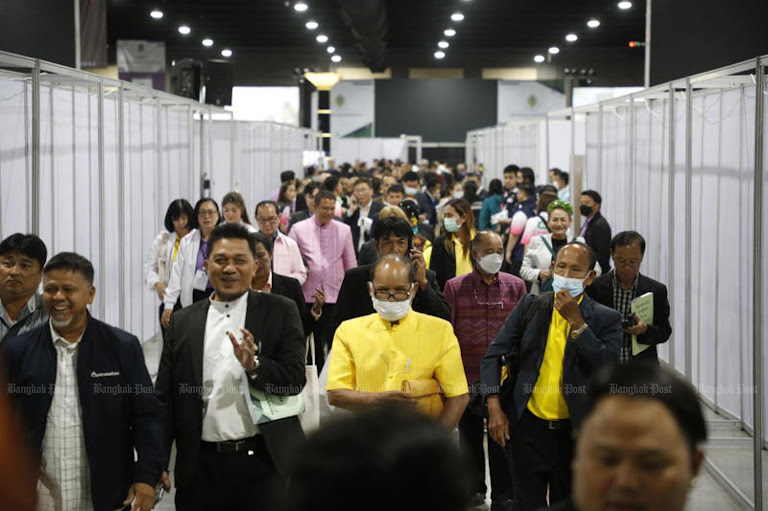Thailand Senate Election Rigging Suspects Face Money Laundering Probe
DSI investigates 1,200 suspects for money laundering connected to alleged vote-rigging, exposing systemic vulnerabilities in Thailand’s Senate election process.

The news coming out of Thailand regarding the 2024 Senate elections should concern anyone interested in the health of democratic institutions. The Department of Special Investigation (DSI) is currently investigating approximately 1,200 suspects for alleged involvement in money laundering connected to vote-rigging, as reported in these recent findings. This isn’t just a story about a few bad actors; it’s a case study in how systemic vulnerabilities can be exploited to undermine the integrity of an entire electoral process. The fact that the DSI and the Election Commission (EC) are jointly conducting the inquiry suggests a seriousness that the situation warrants, but also underlines the depth of the alleged corruption.
It is alleged that an illegal secret organization was operating in connection with the poll, and the DSI is examining financial trails before, during, and after the elections at various levels to determine the scope of the illegal activity. This paints a troubling picture of a coordinated effort to manipulate the outcome. Beyond the immediate legal ramifications for those involved, this scandal raises profound questions about the resilience of Thailand’s democratic structures.
Here’s a breakdown of some of the key factors at play:
- Vulnerability of the Senate Election Process: What specific aspects of the Senate election procedures made it susceptible to manipulation? Was it a lack of oversight, loopholes in campaign finance regulations, or something else entirely? Understanding these weaknesses is crucial for preventing future abuses.
- The Role of Money in Politics: The money laundering allegations point to a significant influence of illicit funds. How did this money flow into the system, and what measures can be implemented to curb the influence of dark money in future elections?
- Erosion of Public Trust: Incidents like this inevitably erode public trust in government and democratic institutions. Rebuilding that trust will require not only punishing the perpetrators but also implementing systemic reforms to ensure transparency and accountability.
According to the DSI, anyone who supported vote-rigging could face charges under the Anti-Money Laundering Act. As reported, summonses have already been served to some senators allegedly involved, marking a significant step in the investigation. The EC, for its part, is focused on violations of the Senate election law and potential disqualifications.
However, simply prosecuting individuals is insufficient. The crucial task ahead is to identify and address the structural weaknesses that allowed this alleged corruption to occur in the first place. This requires a deep and honest assessment of Thailand’s political system and a willingness to implement meaningful reforms.
The sheer scale of the alleged money laundering and vote-rigging suggests a rot that goes beyond isolated incidents. It’s a stress test for Thailand’s democratic institutions, one that will reveal the strength and resolve of its commitment to the rule of law.
This scandal serves as a stark reminder that democracy is not a static achievement but an ongoing project that requires constant vigilance and reform. Unless Thailand takes decisive action to address the systemic vulnerabilities exposed by this case, the future of its democratic institutions remains uncertain.









